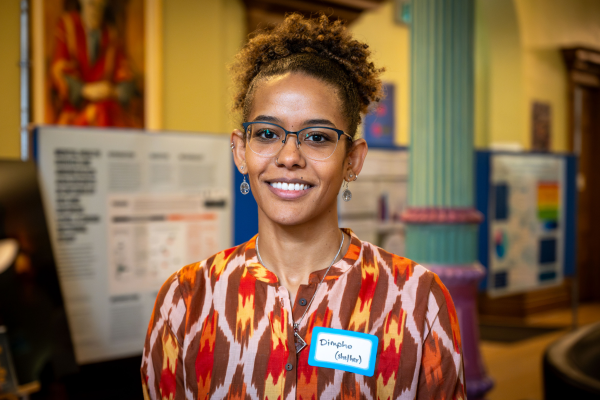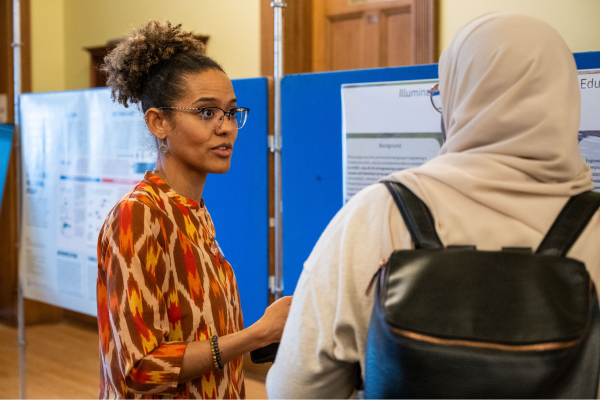How can engineering culture be more inclusive? U of T doctoral student turns to her own story for answers


Dimpho Radebe wanted to use her engineering degree to create positive change and impact everyday life. That’s when she found industrial engineering.
The field gave her a framework to consider the human side of engineering, like systems, processes and psychological perspectives. But as Radebe moved through her undergraduate degree at the University of Toronto and into her career, she often found herself one of the few Black women in the room.
“For many of us who struggle with relating to traditional engineering culture, or just see ourselves differently as engineers, it can feel isolating,” says Radebe, a doctoral student in the department of chemical engineering and applied chemistry in the Faculty of Applied Science & Engineering.
Questions about how engineers are trained, how they use their degrees and what defines engineering culture led Radebe back to U of T to pursue a PhD in engineering education.
In recognition of her work, Radebe received the Outstanding Graduate Student Poster Award following her presentation “Illuminating the Shadows of Engineering Education: A Black Queer Feminist Perspective,” at the BRN Research Symposium. The award was made in collaboration by the Black Research Network and the U of T Black Graduate Students’ Association.
Her research uses Black feminist autoethnography and critical race counter-storytelling to reflect on key moments in her engineering education and career from 2010 to 2024. She examines equity, diversity and inclusion (EDI) efforts and explores issues related to the retention of Black women in engineering for educators and employers committed to decolonization and inclusion.

According a 2022 report from Engineers Canada, 25.2 per cent of engineering undergraduate students in Canada self-identified as female, while 74.8 per cent identified as male in 2021. A 2023 report from the same organization found that among practicing engineers, 86 per cent identified as male and only 14 per cent as female.
Canada’s narrative of multiculturalism – and the belief that racism isn’t as prevalent here – has led to less attention and research compared to the United States, Radebe says.
“I decided to begin with my own experience, given the limited data available, as a starting point for deeper exploration,” she says. “I wondered if personal insights could highlight the need for more research, especially from a Canadian perspective.”
Her work highlights not only exclusionary practices in engineering culture, but also the need for greater curricular flexibility and deeper discussions about navigating education, the profession and the recognition of various career pathways within it.
“My ultimate hope is that other engineering students who engage with this research feel validated in their own experiences and empowered to chart their own career trajectories,” Radebe says.
Learn more about the interdisciplinary projects featured at the inaugural BRN Research Symposium.







